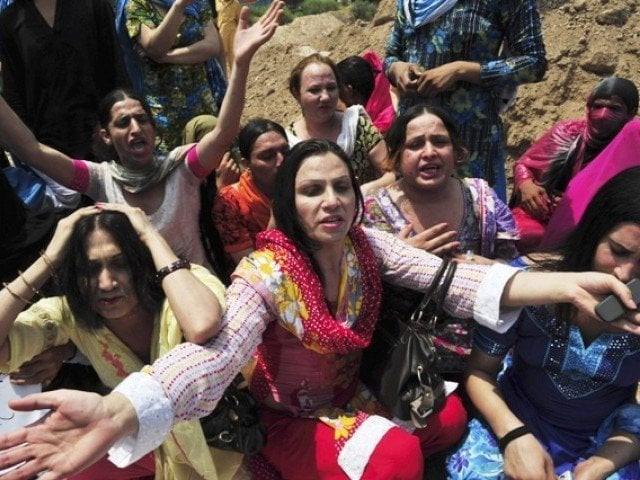Bureaucratic hurdles prevent trans people from getting CNICs
Most applicants are unable to provide documents that are mandatory

A national identity card is a luxury good for members of the transgender community in Pakistan as acquiring one requires overcoming innumerable layers of bureaucratic obstacles.
These obstacles largely go unnoticed because the 2017 census puts the number of people belonging to the transgendered community in Pakistan at a measley 10,313.
NGOs working on the rights of transgender persons dispute this number as according to a report by Human Rights Commission of Pakistan (HRCP) and a writ petition filed in the Peshawar High Court, the number of transgender persons in the country stands at 1.8 million.
Social activist Zanaiya Chaudhry who works for the rights of transgender persons, welcomed the Punjab government’s recent initiatives, costing 160 million rupees, to build a community center and start vocational training programs for her community. She also lauded the federal government’s decision under which all transgender individuals having a CNIC have been included in the Ehsas Kifalat program through which they would get a monthly stipend of Rs 2,000.
However, Chaudhry said that the requirement to have a national identity card, to avail the relief under the Ehsas Kifalat program, would be a hindrance as a large number of the community members do not have an identity card in which their special gender is declared.
Read Punjab govt allocates quota for transpeople
A majority of transgender persons in Pakistan still have a male or a woman identity card; Neeli Rana, resident of Walton Road, Lahore, says there are a number of reasons for this. “The first one is family. We think having our gender on the ID card will make our families angrier [at us than they already are] and distance us further. The second problem is the NADRA staff has not been given any training in issuing ID cards for our gender,” she told The Express Tribune.
Rana narrating the story of her two transgender students, trying to acquire ID cards from their local NADRA centre, said that they went to change their name and gender on the identity card but the staff did not cooperate with them. She added that the staff explained that name change was a separate procedure and a medical certificate was required to change the gender on the card.
“I asked them [NADRA staff] whether a man or a woman is asked for proof of sex while making their identity card,” Rana remarks pointedly. She suggested that NADRA should issue transgender sensitization instructions to its staff.
Another transgender, who identified herself as Khushboo, while talking to The Express Tribune about NADRA staff’s lack of training said that she went to NADRA office to get her ID card and was told she should bring one of her family members with her as well as a medical certificate. “They never told me which medical institution I should get the certificate from,” she said.
Khushboo recounts that she ran into further hurdles in acquiring a medical certificate for her ID card. “When I got to the hospital, they asked why they should make a certificate [for her]? How can we report on our own unless a government agency asks us in writing for a medical report?”
As for NADRA staff’s second condition to bring a family member with her for an ID card, “If I bring a family member with me, they will never confirm that I am a transgender,” Khushboo told The Express Tribune.
Published in The Express Tribune, August 5th, 2021.



















COMMENTS
Comments are moderated and generally will be posted if they are on-topic and not abusive.
For more information, please see our Comments FAQ